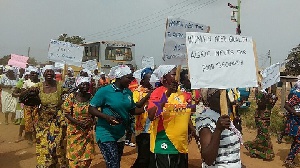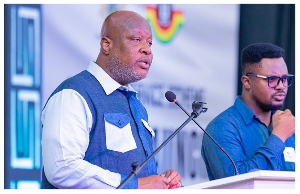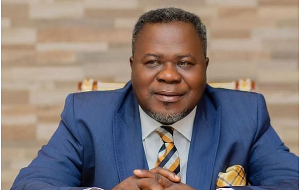 Some women marking the International Day of Rural Women
Some women marking the International Day of Rural Women
Campaign for Female Education (CAMFED), in marking the International Day of Rural Women, on Thursday, has urged the government and other stakeholders to continually to address their needs and that of girls to guarantee their wellbeing.
CAMFED, a pan-African movement with interest in women and girls’ affairs, who said this in a statement issued to the Ghana News Agency, called for a global response by governments, faith-based organisations, civil society and NGOs, and the media, to the myriad of challenges facing women and girls globally.
Rural women and girls, it said, were leaders in agriculture, food security and nutrition, natural resource management, and unpaid and domestic care work.
“They are at the frontline when natural resources and agriculture are threatened,” it added.
It noted that this year’s event was being celebrated at a time world leaders had committed to gender equality in climate change policy and response.
However, the progress had been slow, especially in addressing the plights of rural women, it said.
The celebration is under the theme: “Building rural women’s resilience in the wake of COVID-19.”
The United Nations (UN) says globally, one in three employed women works in agriculture. Women also collect biomass fuels, manually process food materials, and pump water.
Eighty percent of households without pipe-borne water also rely on women and girls for water collection.
“This calls for global action is even more important, considering that, though women constitute a majority of the population worldwide, they were underrepresented in public - facing and decision-making roles, and often feel their voices are not heard,” the statement said.
However, it said, it was encouraging that 25 years after the Beijing Conference, many civil society and non-governmental organisations across the world were implementing interventions to help women and girls to thrive.
As a pan-African movement, it said, CAMFED was revolutionising how girls’ education was delivered, adding that, through “a gold-standard system of accountability to the young people and communities it served, it had created a model that radically improved girls’ prospects of becoming independent, influential women.
“Our impact increases exponentially through the Association of young women educated with CAMFED’s support. Together, we multiply the number of girls in school, and accelerate their transition to secure livelihoods and leadership,” it said.
It explained that a common thread in the organisation’s programming was that interventions not only supported marginalised children to access school and overcome the barriers that kept them from learning once they were in school.
It also supported them on the path to independent livelihoods after completing school.
Through the CAMFED Association and Parent Support Groups (PSGs), women, it said, were leading action on the challenges their countries faced - from child marriage, and girls’ exclusion from education, to climate change.
“This unique pan-African network of lawyers, doctors, educators, and entrepreneurs now numbers more than 150,000, and is growing exponentially as more girls complete school and join them,” CAMFED said.
“Our collective efforts have already supported more than 3.3 million children to go to school across Ghana, Malawi, Tanzania, Zambia, and Zimbabwe, and nearly 5.7 million students have benefitted from an improved educational environment.
“We, therefore, join UN Women in calling for action to support rural women and girls and grow their capacities while appreciating their struggles, their needs, and their critical and key role in our society, especially within the context of COVID-19.”












